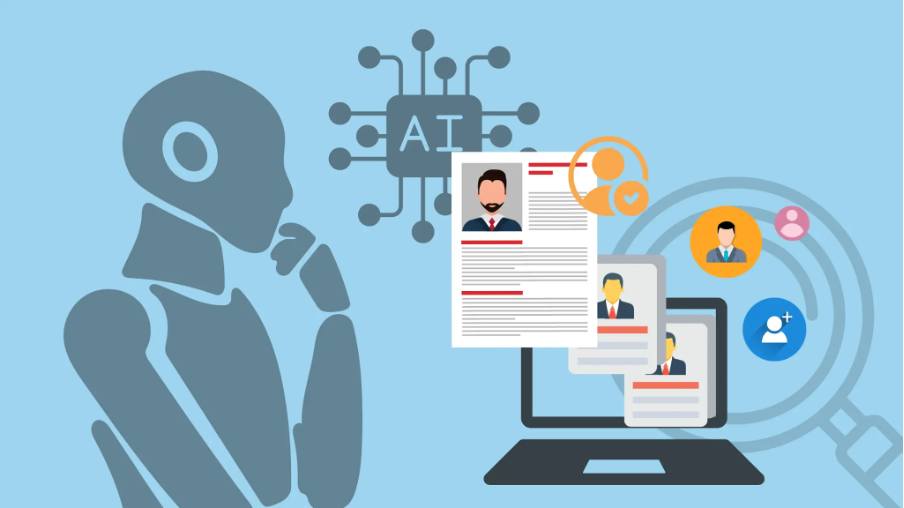A few years ago, recruitment entailed mountains of resumes, numerous interviews, and gut emotions. AI is changing the rules. AI is revolutionizing recruiting by reading resumes in seconds and predicting employment success.
This method goes beyond faster hiring. It improves intelligence, fairness, and intimacy. Discuss how AI is transforming how companies acquire and retain top people, its benefits, and its potential risks.
Improved Screening and Resume Matching
Resume screening has long been a time-consuming recruitment phase. Large firms receive hundreds or thousands of applications for one position. Hiring managers used to spend days manually sifting resumes, losing fantastic applicants due to keyword omission. Today, automation and AI tools simplify this process, making it faster and more efficient — much like how online systems streamline other industries such as gaming platforms that offer free spins no deposit bonuses like https://casinosanalyzer.co.nz/free-spins-no-deposit to attract users instantly.
AI transformed that. Modern recruitment technologies evaluate applications faster than humans using machine learning and NLP. They take context into account while searching for words. The algorithm may recognize candidates who say “managing projects” or “leading teams” as relevant experience for a “team leadership” job, even if they never utter that precise word.
AI can also match resumes to job descriptions, rate candidates by fit, and identify standouts. This saves recruiters hours of laborious work and prioritizes top applicants.
Success Prediction Before Interview
AI's predictive capacity is another employment benefit. Data may help companies make better decisions than intuition. By analyzing work history, background, and personality, AI can predict job performance and retention.
AI-driven algorithms may find that candidates with certain communication styles deliver better customer service or that problem-solvers stay longer.
These strategies assist recruiting managers pick promising candidates, reducing turnover and improving efficiency. This doesn't replace human judgment, but it helps recruiters decide.
Chatbots in Hiring
AI changes employer-candidate communication. Early-stage talks that took recruiters hours are now handled by chatbots.
AI chatbots may welcome prospects, answer job questions, explain recruitment, and perform basic screening interviews. Candidates no longer have to wait days for answers, and recruiters may concentrate on more vital tasks.
The best part? The bots enable candidates to contact a company 24/7, from lunch to bedtime.
Scheduling and Assessment Automation
In addition to communication, AI may schedule interviews. Avoid lengthy emails and time zone misunderstanding. Automation schedules, suggests times, and confirms applicant and interviewer meetings.
AI also helps evaluate candidates. Skills may be tested online using simulations, games, and coding tasks. Some video interview systems evaluate confidence, honesty, and emotional intelligence using face and voice analysis.
However, prudence is essential here too. AI should encourage fair evaluation, not replace it. If the system was trained on little or unbalanced data, opaque algorithmic evaluations may be biased.
Why Employers Love AI Recruitment Tools
AI in recruitment is vital, not a trend. Global companies must hire quickly, compete, and use data. AI helps them achieve that.
Five main reasons firms are using AI for recruitment:
- Speed. Automating repetitive tasks using AI cuts hiring time significantly.
- Cost Efficiency. Faster recruiting reduces screening and interview time.
- Accuracy. AI can evaluate thousands of data points without tiring or becoming sidetracked.
- Candidates Experience. Automation streamlines applications and provides rapid feedback.
- Diversity & Inclusion. Well-designed AI may reduce unconscious bias and emphasize potential.
Better recruits, stronger teams, and creative workplaces result from these variables.
Challenges and Ethics
AI in recruiting has pros and cons. The biggest issue is prejudice. AI can reduce human prejudice, but if taught on faulty data, it might increase it. A machine learning algorithm educated on past recruiting data may continue to rank women lower.
Privacy is another concern. AI systems examine massive personal data. Companies must disclose their data collection, usage, and storage timeframes. Candidates deserve responsible personal data handling.
One last concern is losing the “human touch.” Some candidates fear automated systems make the process impersonal. Maintaining trust requires balancing automation with humanity.
How AI Humanizes Recruitment
AI may humanize hiring while being machine-based. Remove unnecessary administrative chores to allow recruiters more time with people.
They may spend hours creating connections, understanding motives, and matching personalities to business culture instead of scanning applications or organizing interviews. The AI handles data, the humans manage emotions.
Technology and humans provide balanced and careful hiring. AI may help recruiters engage prospects in meaningful conversations and make them feel heard.
The Future: Personalized Hiring Journeys
AI will personalize recruiting in the future. Imagine a personalized hiring procedure.
AI might recommend a job based on your talents, personality, and career objectives. A tailored study path may prepare you for your desired job. AI could develop entire applicant profiles that show recruiters what they've done and what they can accomplish next.
Early versions are seen. Some systems utilize predictive analytics to chart career progress and recommend internal promotions or training before employees ask. This helps retain talent and motivates employees.
Planning for AI-Powered Future
Companies must be careful to use AI in recruitment. Clear ethics, excellent data, and human oversight make technology operate best.
A few guidelines for appropriate AI hiring:
- Transparency. Candidates should know when and how AI affects choices.
- Data Quality. Train algorithms on varied, fair datasets.
- Human Oversight. Humans should always make employment choices.
- Privacy. Store and utilize sensitive data carefully.
- Constant Learning. AI systems should be upgraded to match new roles and industry requirements.
These strategies guarantee that AI promotes justice when applied properly.
Conclusion
No AI will replace recruiters. Rather, it will redefine their role. Future employment is partnership, where technology manages efficiency and people provide emotional intelligence.
AI-powered recruiting is faster, smarter, and data-driven, but people matter. Empathy, intuition, and connection motivate people.
Success will come to organizations who employ AI to empower recruiters, not replace them. Their hiring practices will be quick, fair, personable, and motivating.
The future of hiring is now. It shines brighter than ever with the correct people-technology balance.






